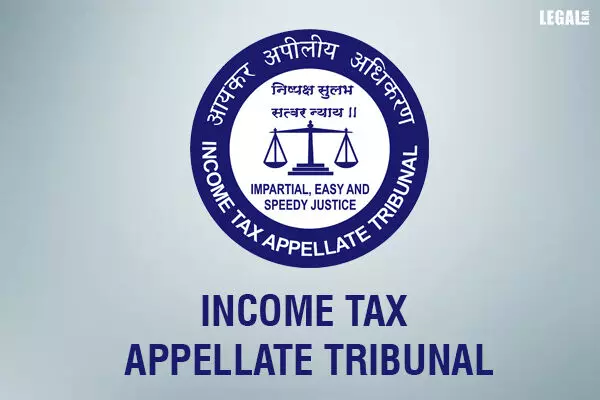- Home
- News
- Articles+
- Aerospace
- Agriculture
- Alternate Dispute Resolution
- Banking and Finance
- Bankruptcy
- Book Review
- Bribery & Corruption
- Commercial Litigation
- Competition Law
- Conference Reports
- Consumer Products
- Contract
- Corporate Governance
- Corporate Law
- Covid-19
- Cryptocurrency
- Cybersecurity
- Data Protection
- Defence
- Digital Economy
- E-commerce
- Employment Law
- Energy and Natural Resources
- Entertainment and Sports Law
- Environmental Law
- FDI
- Food and Beverage
- Health Care
- IBC Diaries
- Insurance Law
- Intellectual Property
- International Law
- Know the Law
- Labour Laws
- Litigation
- Litigation Funding
- Manufacturing
- Mergers & Acquisitions
- NFTs
- Privacy
- Private Equity
- Project Finance
- Real Estate
- Risk and Compliance
- Technology Media and Telecom
- Tributes
- Zoom In
- Take On Board
- In Focus
- Law & Policy and Regulation
- IP & Tech Era
- Viewpoint
- Arbitration & Mediation
- Tax
- Student Corner
- AI
- ESG
- Gaming
- Inclusion & Diversity
- Law Firms
- In-House
- Rankings
- E-Magazine
- Legal Era TV
- Events
- News
- Articles
- Aerospace
- Agriculture
- Alternate Dispute Resolution
- Banking and Finance
- Bankruptcy
- Book Review
- Bribery & Corruption
- Commercial Litigation
- Competition Law
- Conference Reports
- Consumer Products
- Contract
- Corporate Governance
- Corporate Law
- Covid-19
- Cryptocurrency
- Cybersecurity
- Data Protection
- Defence
- Digital Economy
- E-commerce
- Employment Law
- Energy and Natural Resources
- Entertainment and Sports Law
- Environmental Law
- FDI
- Food and Beverage
- Health Care
- IBC Diaries
- Insurance Law
- Intellectual Property
- International Law
- Know the Law
- Labour Laws
- Litigation
- Litigation Funding
- Manufacturing
- Mergers & Acquisitions
- NFTs
- Privacy
- Private Equity
- Project Finance
- Real Estate
- Risk and Compliance
- Technology Media and Telecom
- Tributes
- Zoom In
- Take On Board
- In Focus
- Law & Policy and Regulation
- IP & Tech Era
- Viewpoint
- Arbitration & Mediation
- Tax
- Student Corner
- AI
- ESG
- Gaming
- Inclusion & Diversity
- Law Firms
- In-House
- Rankings
- E-Magazine
- Legal Era TV
- Events
ITAT (Rajkot): 'Prima Facie Belief' Key for Initiating Income Tax Proceedings

ITAT (Rajkot): 'Prima Facie Belief' Key for Initiating Income Tax Proceedings
The Rajkot bench of the Income Tax Appellate Tribunal (ITAT) has ruled that under Section 147 of the Income Tax Act, the Assessing Officer is required to form only a prima facie belief that the income has escaped assessment in order to initiate proceedings.
The recent case revolved around the assessee's challenge to the initiation of proceedings under Section 147 of the Income Tax Act.
In their ruling, the ITAT bench consisting of Waseem Ahmed (Accountant) and Siddhartha Nautiyal (Judicial) referred to the precedent set by the Supreme Court in the case of Raymond Woollen Mills Limited v. Income Tax Officer and Others [LQ/SC/1997/1710]. The Apex Court had underlined in its ruling that the court's role was to assess whether there existed prima facie material that warranted the reopening of the case by the Department. The sufficiency or accuracy of the material was deemed irrelevant at that initial stage of consideration.
The ITAT bench considered the observations made by the Commissioner of Income Tax (Appeals) in the appellate order. The CIT (Appeals) had noted that despite substantial cash deposits totalling ₹32,55,500, the assessee had not filed a return of income. Based on this finding, the CIT (Appeals) deemed it sufficient grounds to initiate proceedings under Section 147 of the Income Tax Act.
“We find no infirmity in the order of Ld. CIT(Appeals) when he held that proceedings under section 147 of the Act were validly initiated, looking into the facts of the instant case,” the bench stated.
In its partial allowance of the assessee's appeal, the bench acknowledged the well-established legal principle that only the profit component of receipts should be subject to taxation. Consequently, the bench determined that 10 per cent of the total deposits would be regarded as taxable income and taxed accordingly.



